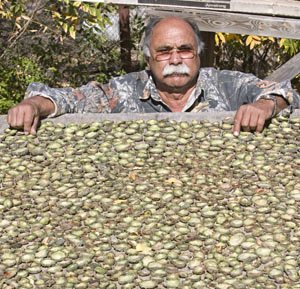Harvesting peyote is legal for only three people, and all of them live in Texas
Much recent scientific research contradicts the DEA's verdict on peyote. There is little evidence of any adverse long-term effects on physical health and virtually no evidence that it is addictive.
Still, harvesting and selling peyote is illegal for all but three people in the entire country. And those three people happen to be located in Texas, operating in a swath of South Texas between Rio Grande City and Laredo.
These people—Morales is one of them—are called peyoteros, people who make their living selling peyote buttons to the approximately 250,000 Indian members of the Native American Church. Only 20 years ago, there were dozens of peyoteros in small towns along the border. Now, two of the three still working are in their 60s. Meanwhile, membership in the Native American Church is growing, and demand for peyote is outstripping the limited supply.


No comments:
Post a Comment